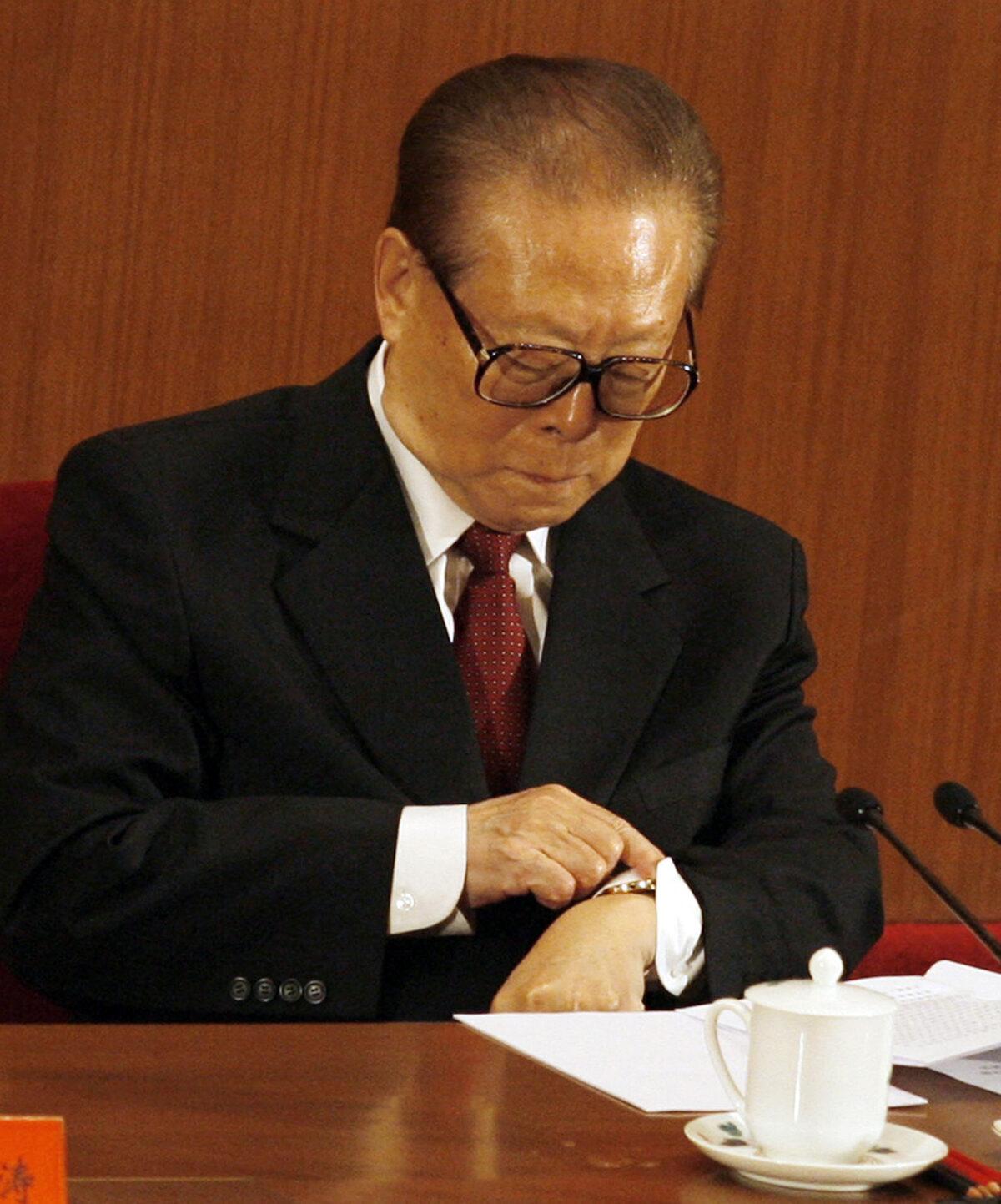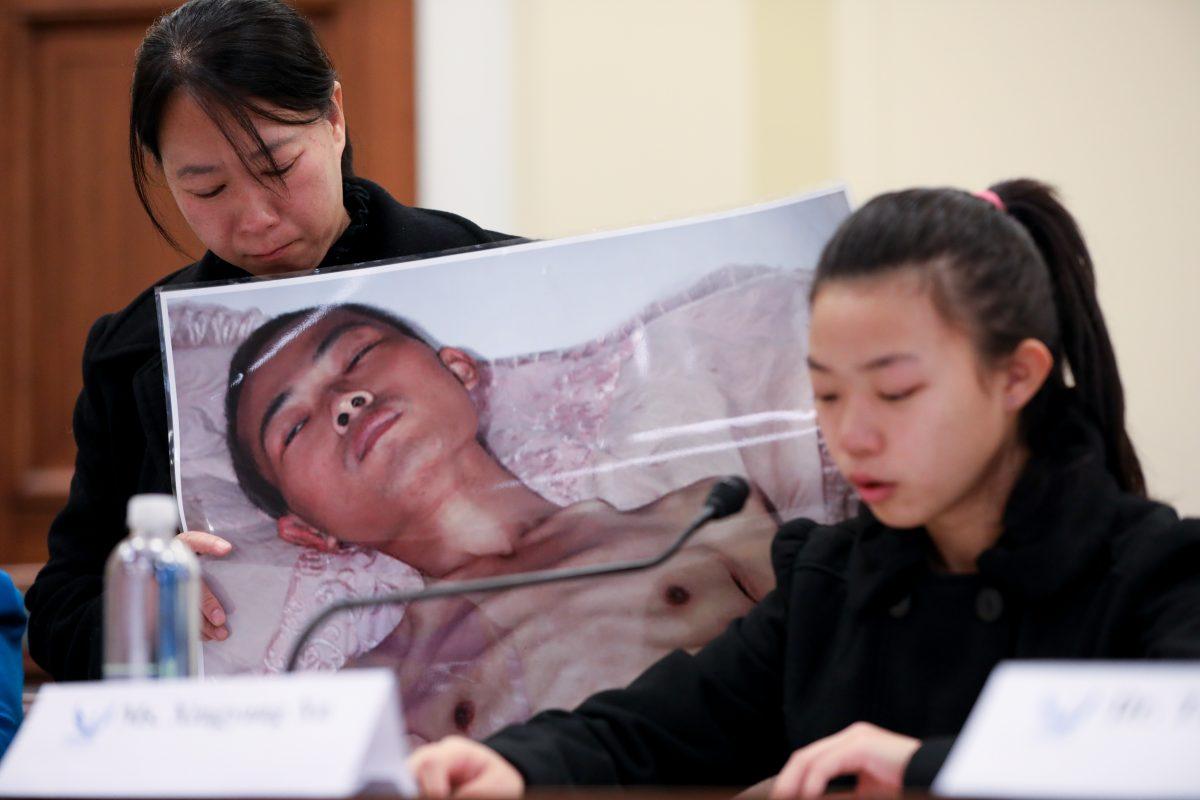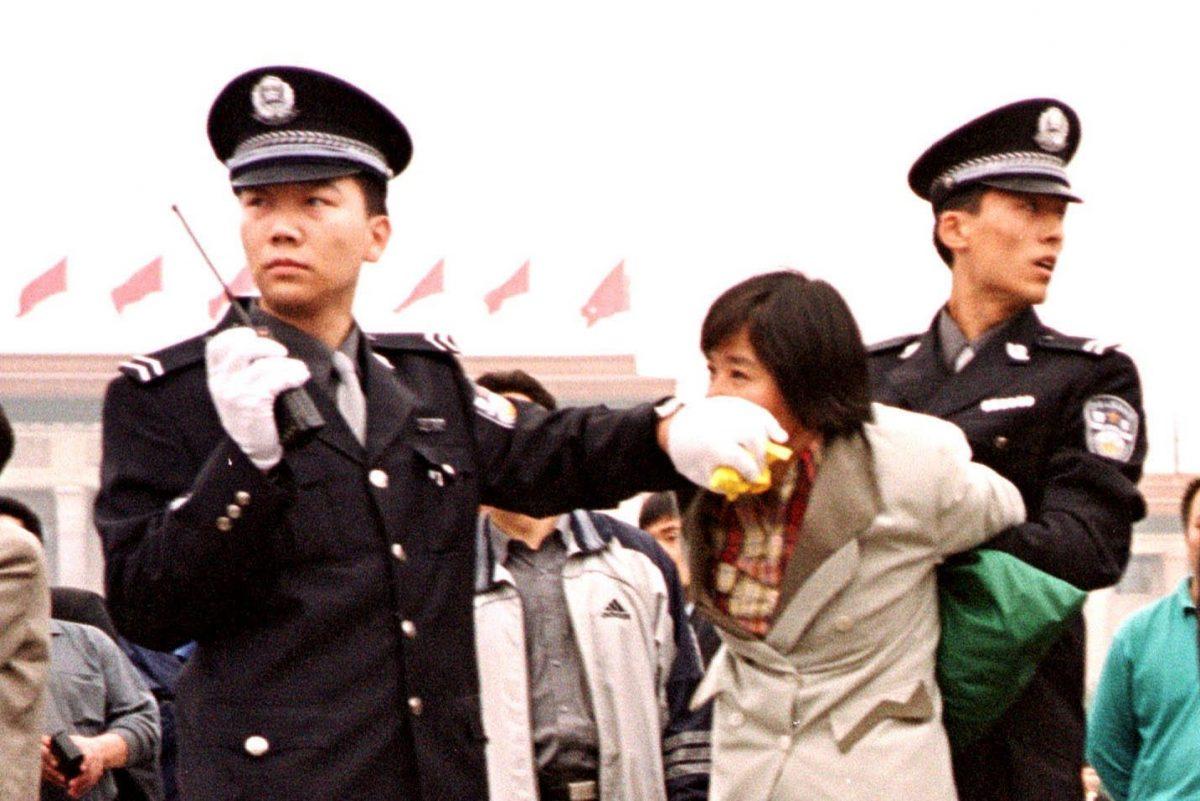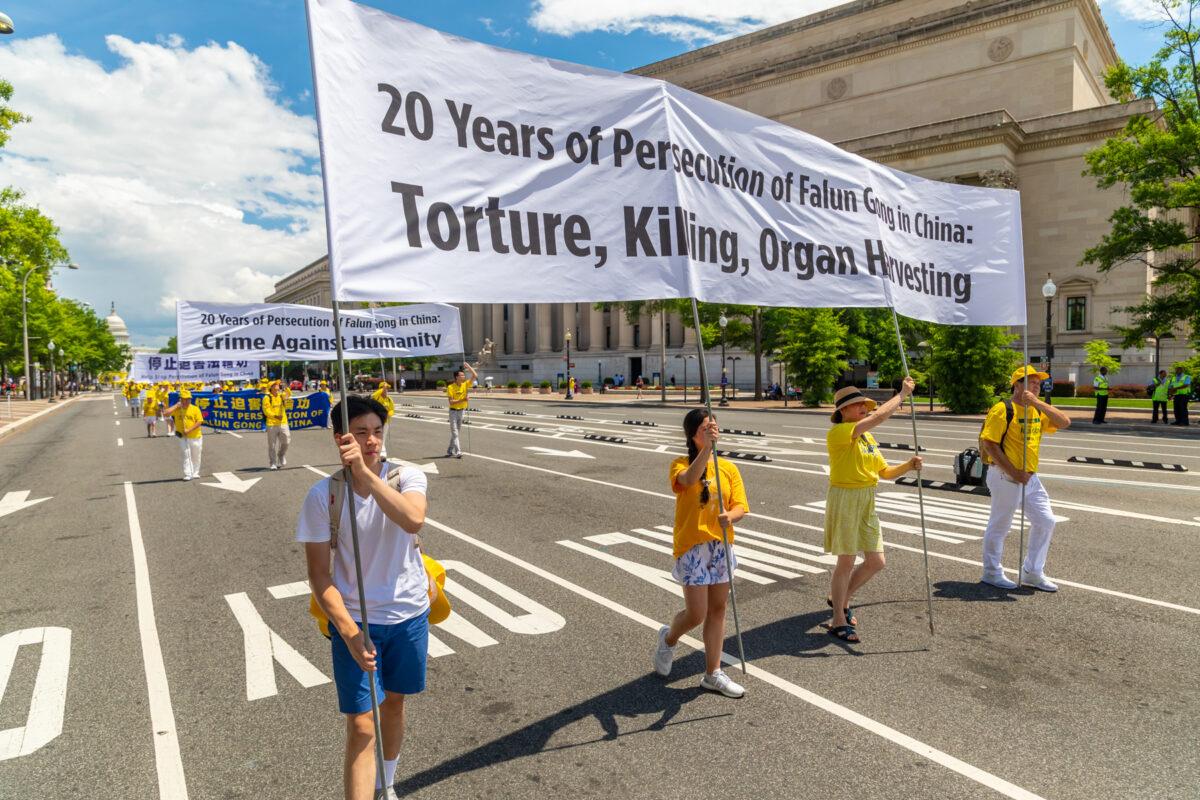For as many as 100 million Chinese, the year 1999 was a watershed moment in their lives.
That year, a massive nationwide persecution began under the orders of Jiang Zemin, then the Chinese Communist Party (CCP) boss, a campaign that indiscriminately targeted adherents of the spiritual practice Falun Gong.
They’ve been subjected to this savagery for merely refusing to give up their belief in truthfulness, compassion, and forbearance, the core principles guiding the discipline, which also involves a set of slow-moving meditative exercises.
The Instigator
Jiang single-handedly started the persecution and mobilized the entire state apparatus to carry out the brutal campaign.
He appeared so eager to solicit international support for the campaign that, at the annual APEC meeting in September 1999, two months after the launch of the suppression, he handed then-U.S. President Bill Clinton a book defaming Falun Gong in the hopes of convincing the president to adopt a “correct” attitude toward the practice, The Associated Press reported at the time.
“The book’s 150 pages in English is a relentless barrage of propaganda from China’s entirely state-run media,” the report reads.
Jealousy and insecurity have been cited as part of the driving force behind Jiang’s animosity toward the spiritual practice. Falun Gong’s tremendous popularity, reaching almost 1 in every 13 Chinese, was something he couldn’t tolerate.
According to “Anything for Power: The Real Story of China’s Jiang Zemin,” a 2011 book-length series published by The Epoch Times, Jiang’s wife, Wang Yeping, once practiced Falun Gong in 1994. When doing the practice’s exercises one evening, she sensed that someone was mirroring her movements. Opening her eyes, she discovered it was none other than Jiang.
Embarrassed and angry to be caught in the act, Jiang ordered Wang to stop practicing.
“Even my wife believes in Li Hongzhi. Who’s going to believe in me, the general secretary of the Chinese Communist Party,” he said, referring to the practice’s founder.
The decision to go after one of China’s largest spiritual communities wasn’t a popular one from the start.
Of the seven members of the Standing Committee of the Politburo, the Party’s inner sanctum, six expressed objections when Jiang proposed the idea to suppress the practice, according to the publication. Zhu Rongji, the premier of China at the time, suggested that such a move would harm the country’s image and that they should just “allow the ordinary practicing populace to just be.”
Standing up, Jiang pointed at Zhu’s nose and shouted: “Foolish! Foolish! Foolish! That would spell the demise of the Party and the country!
At All Costs
Jiang made such a declaration on April 26, 1999, according to the publication, the day after 10,000 adherents peacefully gathered near the government headquarters in Zhongnanhai, appealing for their rights to practice their belief freely and for the release of dozens of practitioners who were detained days prior.On June 10, Jiang gave direct orders to create an extra-legal agency to coordinate the efforts nationwide. Later known as the 610 Office after the date of its creation, its structure and operations were comparable to the Gestapo in Nazi Germany.
The persecution began on a full scale one month later. State media outlets at all levels pushed out an aggressive propaganda campaign slandering the practice and dehumanizing adherents, while those who refused to give up the belief were subjected to escalating violence and other forms of ill-treatment.

Jiang reportedly gave a secret order that Falun Gong adherents who died from beating and other torture would be declared to have committed suicide and sent for cremation, according to Minghui.
To incentivize perpetrators involved in the scheme, officials reward them with lucrative salaries and often link bonuses with their level of participation. According to a 2001 Minghui report, one police station in Dalian, a port city in northern China, required each officer to arrest nine adherents in order to get a bonus.
In Shanghai, 45-year-old Lu Xingguo was stripped naked and tortured in a cell with a towel stuffed in his mouth to prevent him from making noises.
Lu died within an hour. He lost his teeth and the skin on his lips. His hair was fried and electrocution marks were observed all over his body. The police declared him a suicide victim.
“We have been told that a 5 percent death rate is normal,” a prison unit warden there said in October 2003. “We aren’t concerned about deaths.”
In Dandong city, home to a population of more than 2.4 million at the time and the capital of Liaoning Province in northeastern China, authorities sent out political cadres and the police force more than 5,000 times to carry out activities to suppress Falun Gong during the first two months of the persecution, according to internal documents that The Epoch Times obtained from a trusted source. The result was the ban of more than 100 practice sites over the period, while 22,000 practitioners from the area were visited by police.
The city also spent 30,000 yuan ($4,311)—about five times the average annual disposable income in 2000—producing a play to attack Falun Gong to “educate” more than 10,000 people; in the years through 2005, it printed millions of posters, leaflets, and artworks defaming the practice that were either disseminated or pinned on public notice boards, according to the document.

War-Like Efforts
Jiang had kept close tabs on the persecution’s progress.Jiang wielded political influence from behind the scenes long after he gave up all of his official positions in 2004. He was the leader of the Party faction known as the Shanghai gang, named after the city where Jiang accumulated his political capital as Party secretary. His loyalists, many of whom were key figures overseeing the persecution, occupied various Party branches when current regime leader Xi Jinping assumed office in 2012.
With the millions of personnel deployed to execute the campaign, the persecution has exacted a hefty economic toll on the Chinese state.
A senior judiciary official in Liaoning was quoted by Minghui as saying that “the financial resources used for handling Falun Gong has exceeded the costs of a war.”

Accountability
Following his death, outside critics have renewed calls for accountability, both for him and for the regime.“The persecution of Falun Gong and the intensity of it is really stunning and tells you all you need to know about how deeply totalitarian the system is.”
Chen Yonglin, a former Chinese diplomat who defected to Australia in 2005, considers Jiang’s death the prelude to the regime’s eventual downfall.
But Jiang’s death doesn’t diminish the regime’s bloody legacy, Chen said. Sooner or later, he expects to see the “accounts settled”—with Jiang and the Chinese Communist Party.





